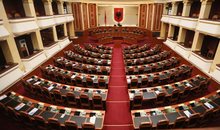
 Flash News
Flash News
EU Integrity for Sale: Tirana Edition
Two people are arrested in Vlora, they are caught with narcotics divided into doses ready for sale
Martin's murder trial, Luis Meçe's father clashes with the prosecutor: You are sleeping with the file
Accident in Astir/ Car drags a person across the white lines
Celibashi: The CEC platform fell victim to several cyberattacks during the elections
Which of the punitive measures has the EU started to remove from Kosovo?
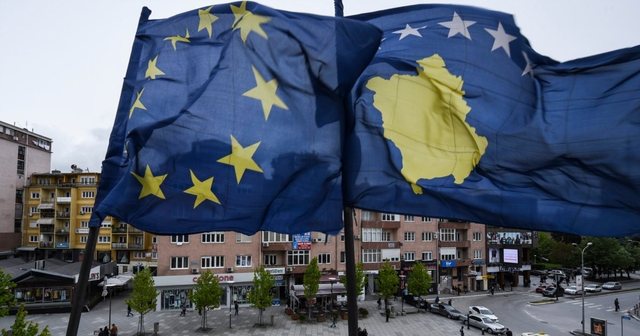
The European Union has finally started slowly lifting measures on Kosovo, after almost two years, but on the condition that it reduces tensions in the north of the Serb-majority country, the head of EU diplomacy, Kaja Kallas, warned in Pristina.
While Kallasi did not explain when the lifting of the measures began and what measures may have been lifted so far, Radio Free Europe learns from its sources in Brussels that the measures that have been lifted relate to the Stabilisation and Association Agreement (SAA), the first contractual pact between Kosovo and the European bloc, and the Investment Framework for the Western Balkans.
According to sources, the work of several SAA sub-committees has now begun, as well as the provision of technical assistance under the Investment Framework for the Western Balkans.
The Western Balkans Investment Framework is a joint initiative of the EU, financial institutions and donors, aimed at the socio-economic development and European perspective of the Western Balkan countries.
Kosovo has been supported by this mechanism since 2009. By 2021, 30 projects worth €1.8 billion had been supported by this mechanism in Kosovo. Projects include road construction, rail rehabilitation, central heating systems, and sewage system improvement.
For the years 2023-2030, within the framework of this mechanism, other projects are envisaged in Kosovo, such as: Pristina - Niš Peace Highway, Belgrade - Prishtina railway road, solar heating for Prishtina, wastewater treatment plant for Prishtina and others.
These measures began to be lifted by the EU's External Action Service (EEAS) and the European Commission after discussions at the Foreign Affairs Council in April, the source said.
"The decision comes after the peaceful conduct of parliamentary elections in Kosovo at the beginning of this year. As High Representative [Kallas] said, this process is gradual and conditional on continuous progress towards de-escalation," the source points out.
The EEAS and the Commission are now implementing this decision, keeping member states informed.
The basis for this decision was the conclusions of the EU Council from December 2024, according to which the EU would be ready to start the gradual lifting of the measures, in parallel with the steps of de-escalation in the north of Kosovo, according to the source.
Kallas warned during her visit to Pristina that, while this decision opens the door to greater opportunities for Kosovo's development and closer ties with Europe, it depends on reducing tensions in the north.
The EU imposed punitive measures on Kosovo in 2023 - after rising tensions in the north of the country.
Kallas said that the closure of Serbian parallel institutions in the north of Kosovo by the Kosovar authorities is "undermining" efforts towards de-escalating the situation.
Kosovo authorities have closed a number of Serbian parallel institutions in recent weeks, which they say are illegal./REL
Latest news


Diaspora vote, Berisha: The envelopes were filled in Albania
2025-05-22 22:45:58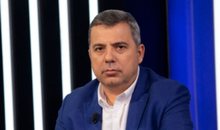
"Notify the DEA", Abilekaj: Internationals do not trust our institutions
2025-05-22 22:30:07
Operation "Bridge", journalist: SPAK was used as an election certifier
2025-05-22 22:07:35
Berisha: Rama won 28 mandates with criminal gangs
2025-05-22 21:58:18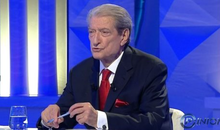

Fevziu clarification for Artan Lamen: He is still alive, but in a coma
2025-05-22 21:44:33
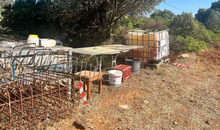

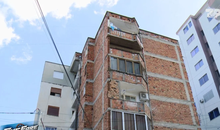
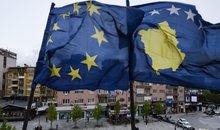
Which of the punitive measures has the EU started to remove from Kosovo?
2025-05-22 20:49:38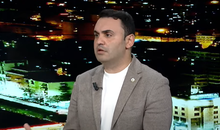
Këlliçi: SPAK acted after the elections, directed by Rama
2025-05-22 20:42:10
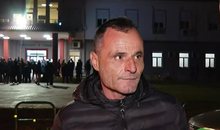


EU Integrity for Sale: Tirana Edition
2025-05-22 19:51:52
Plane crashes into homes in San Diego, California, several casualties reported
2025-05-22 19:49:43
May 11th Elections, Source: With the Bulgarian Train, he wins 300 thousand votes
2025-05-22 19:34:16
Citizens pay out of pocket for health funds at the lowest level since 2017
2025-05-22 19:21:43
After three terms/ Erdogan: He will not run for president again
2025-05-22 19:08:35

SPAK seized two properties in 'Kodra e Diellit', Veliaj and Xoxa's lawyers react
2025-05-22 18:42:25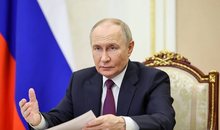

Symbolic or essential? The risk of women's representation in the new Parliament
2025-05-22 18:14:54

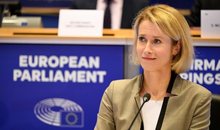
Kaja Kallas: We have started to lift the measures against Kosovo
2025-05-22 17:20:29


How to store aromatic herbs so they stay fresh for weeks
2025-05-22 16:50:07

Operation URA, a bridge that connected crime, power and the silence of SPAK!
2025-05-22 16:30:21
CIA Alert/ Shooting outside Langley headquarters, one injured
2025-05-22 16:20:53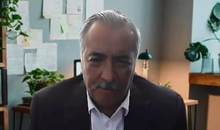






"Anti-drugs also hit the police", the US trusts citizens more than institutions
2025-05-22 15:24:51
Israel releases photos and identities of two embassy employees killed in US
2025-05-22 15:18:02

Kallas in Belgrade: Serbia must prove that it truly aims for EU membership
2025-05-22 14:56:45
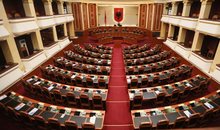
Parliament returns, MPs to hold plenary session on Thursday
2025-05-22 14:34:25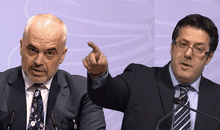
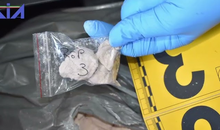
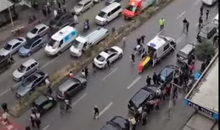
Accident in Astir/ Car drags a person across the white lines
2025-05-22 14:00:14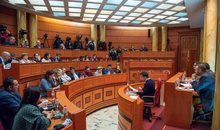
Wave of dismissals in Tirana Municipality, Ristani dismisses Veliaj's associates
2025-05-22 13:53:26
A month after Kashmir attacks, Indian PM rules out talks with Pakistan
2025-05-22 13:40:41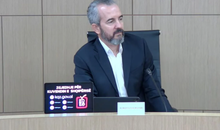

WHO report: Population is aging, social policies are needed
2025-05-22 13:23:12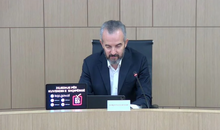


Patient dies during surgery, doctor prosecuted in Durrës
2025-05-22 12:54:55

The “Black Eagle” dossier in Brussels exposes money laundering in Albania
2025-05-22 12:39:16
Berisha publishes video: Voter lists and ballots were found in the village bar
2025-05-22 12:30:29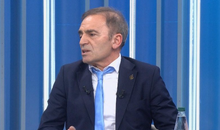


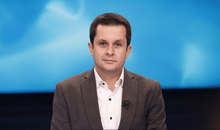

"5D" file, debate between the defendants' lawyers
2025-05-22 11:37:05

Hoxha: The Troplini received projects from the Prime Minister, appointed leaders
2025-05-22 11:16:59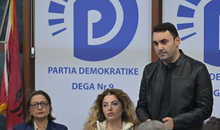
Këlliçi: The elections, a farce organized by the state and organized crime
2025-05-22 11:07:19
"Toyota Yaris", GJKKO sentences lawyer Radovan Çela to 4 years in prison
2025-05-22 10:56:47

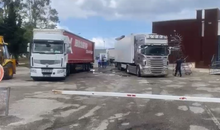
Anti-drug mega-operation, checks at the Port of Vlora
2025-05-22 10:13:54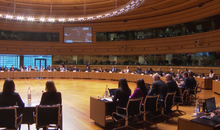



European Union's top diplomat Kallas visits Serbia and Kosovo
2025-05-22 09:36:58
Capital investments at lowest level since 2010
2025-05-22 09:27:12
Two Israeli Embassy staff members killed in Washington
2025-05-22 09:12:46
Pyjet tropikale pësuan shkatërrim rekord në vitin 2024
2025-05-22 09:04:20
Foreign exchange, May 22, 2025
2025-05-22 09:00:12

Accident on the Durrës-Tirana highway, vehicle overturns on the road
2025-05-22 08:31:24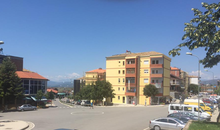

Horoscope, what do the stars have in store for you today?
2025-05-22 08:08:02
Showers, what are the temperatures expected to be like during the day?
2025-05-22 07:54:04
Morning Post/ In 2 lines: What mattered yesterday in Albania
2025-05-22 07:41:33
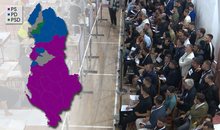

Germany extends the stay of its troops in Kosovo
2025-05-21 22:19:22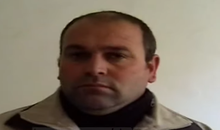
Journalist: Xhevdet Troplini alongside a politician
2025-05-21 22:00:07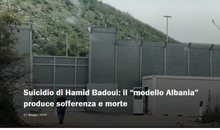
Amnesty International: Camps in Albania, a reflection of an inhumane system
2025-05-21 21:49:09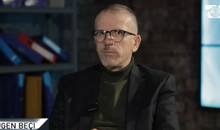
This is the first Albanian justice collaborator
2025-05-21 21:39:45
Bitcoin breaks historical record: Reaches $109,302
2025-05-21 21:36:06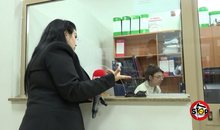
Raped by colleague at the civil registry office, victim fired from job
2025-05-21 21:08:47
Hyn në fuqi vendimi i BSH/ Kredia për blerje banese kufizohet nga 1 korriku
2025-05-21 21:04:37
“Nga dhuna e burrit humba fëmijën”, nëna e dy të miturve kërkon drejtësi
2025-05-21 20:50:23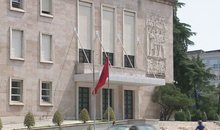
The government extends the stay of Ukrainians in Albania
2025-05-21 20:45:04
Social networks: Friend or foe of our personal relationships?
2025-05-21 20:22:33

